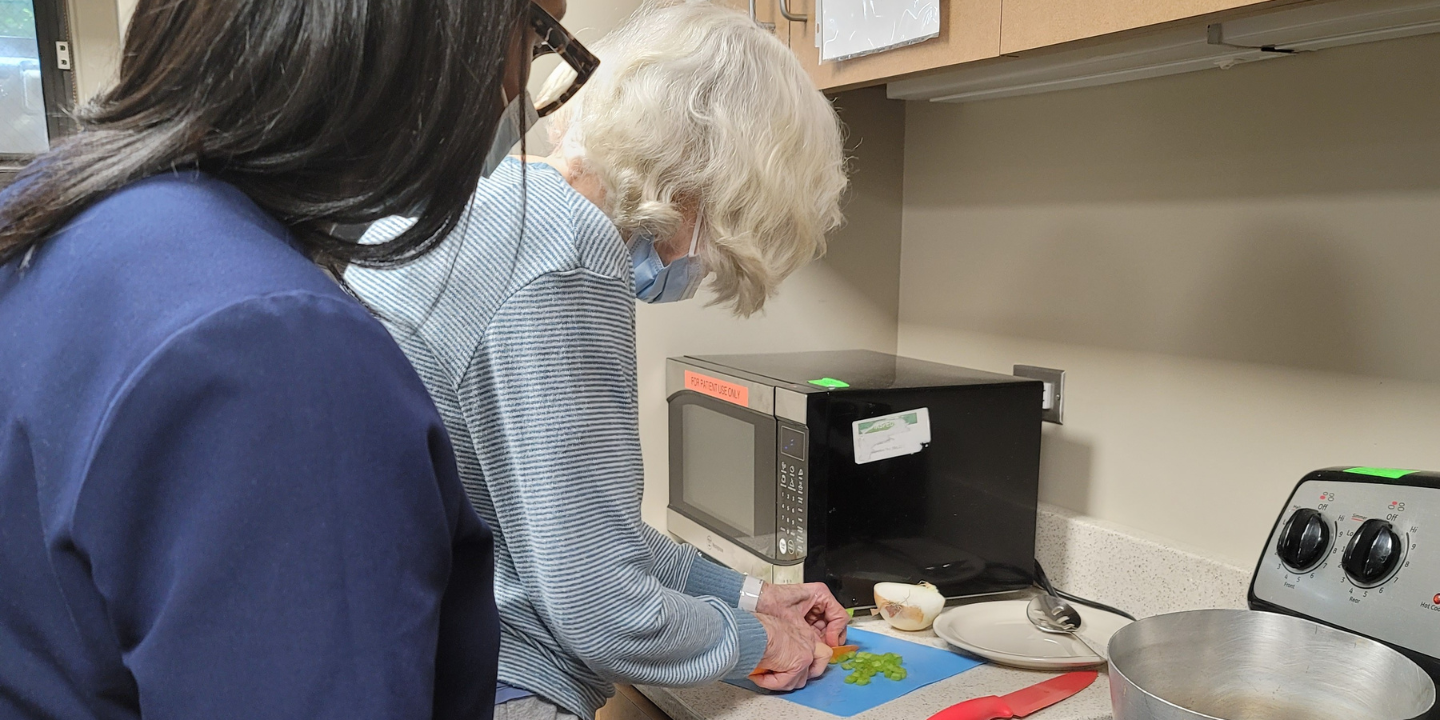Short term rehabilitation plays a pivotal role in helping individuals regain their independence and quality of life after surgery, illness, or injury. Though each patient’s needs are unique, occupational therapy is usually included in their care plan. The importance of occupational therapy in rehab is undeniable, due to its focus on regaining functions to complete a range of normal activities of daily living.
Understanding Short Term Rehab
Short term rehabilitation, commonly known as short term rehab, is a specialized program designed to assist individuals in recovering from acute health conditions. These conditions might include an orthopedic surgery, stroke, cardiac event, illness, or other medical issue that require intensive rehabilitation.
During their rehab stay, patients receive a combination of physical therapy, occupational therapy, speech therapy, respiratory therapy, hemodialysis treatments, skilled nursing services, and more. The exact combination of services will vary per patient and will be determined based upon admission assessments.
The primary goal of short term rehab is to facilitate an effective and safe transition from the hospital to home, ensuring that patients will regain their independence and resume their daily activities.
The Role of Occupational Therapy
Occupational therapy (OT) is a core component of short term rehab programs, as it focuses on enhancing a patient’s ability to perform essential daily activities, often referred to as “occupations.” These activities encompass a wide range of tasks, from dressing and grooming to cooking, bathing, and managing medications. Occupational therapists are trained to assess each patient’s unique needs and create tailored interventions that address physical, cognitive, and emotional challenges in their therapy sessions.
Restoring Independence
One of the primary objectives of occupational therapy in short term rehab is to restore independence. Patients may enter the therapy program feeling dependent on others for even the most basic tasks. Occupational therapists work closely with individuals to rebuild their skills and confidence, enabling them to carry out daily activities on their own. This newfound independence is not just physically liberating but also emotionally empowering, giving the patient a sense of accomplishment and pride.
Personalized Care Plans
When a patient is admitted to the Methodist Home, our occupational therapists evaluate their physical abilities, cognitive function, and emotional state to create a personalized care plan. Each patient’s care plan outlines specific goals and interventions that address their unique challenges. Whether it’s developing strategies for memory loss, teaching adaptive techniques for limited mobility, or providing specialized equipment for self-care, occupational therapists tailor their interventions to optimize patient outcomes.
Promoting Safety
Safety is a paramount concern during the short term rehabilitation process. As part of the treatment plan, occupational therapists assess the patient’s home environment and provide recommendations for modifications or assistive devices to ensure a safe return home. This might include installing grab bars in the bathroom, providing a walker for stability, or teaching techniques for fall prevention. By addressing safety concerns, occupational therapy reduces the risk of accidents and injuries (and re-hospitalization), allowing patients to live independently without fear.
Improving Quality of Life
Beyond physical function, occupational therapy strives to enhance overall quality of life. Therapists work with patients to identify meaningful goals and interests, such as hobbies, social activities, or vocational pursuits. By integrating these passions into the rehabilitation process, occupational therapy not only restores functional abilities but also brings joy and purpose back into patients’ lives.
Can We Help You Heal?
Occupational therapy empowers patients to regain their independence, fosters a sense of accomplishment, and improves their overall quality of life. As an integral part of the rehabilitation team, occupational therapists play a pivotal role in helping patients transition from illness or injury to a life filled with vitality and purpose.
Do you or a loved one need help recovering after a recent event? Contact us today!

